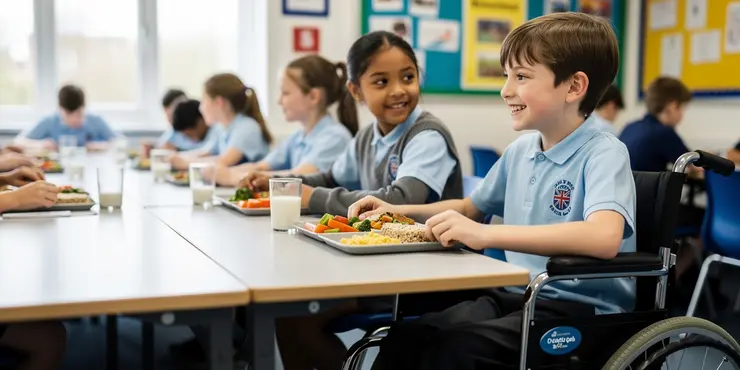
Find Help
More Items From Ergsy search
-
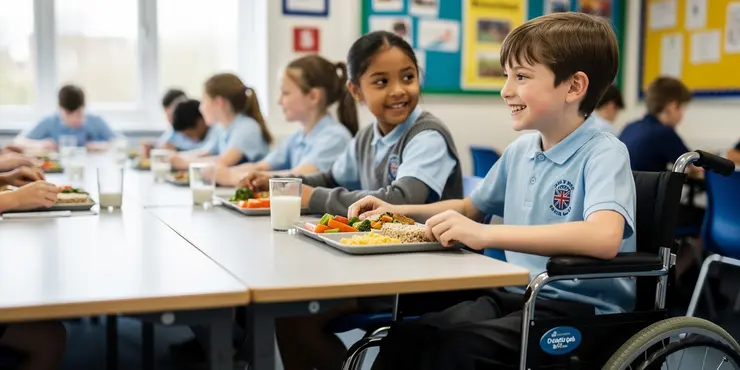
Can children with disabilities access school meals?
Relevance: 100%
-
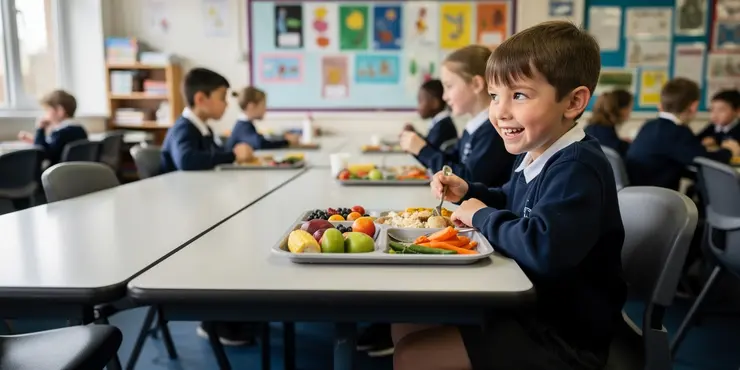
School meals in the UK?
Relevance: 68%
-
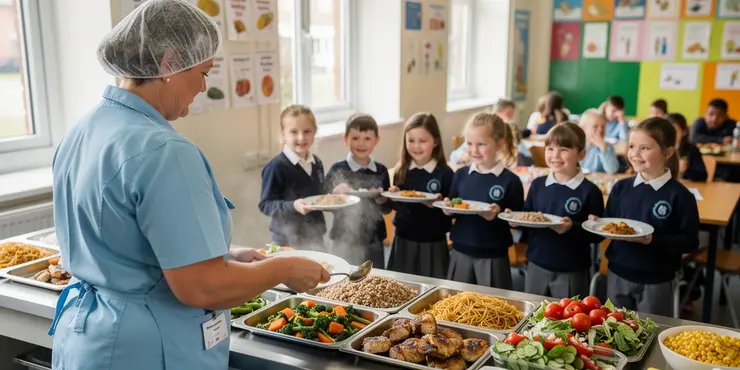
How are school meals provided in the UK?
Relevance: 67%
-
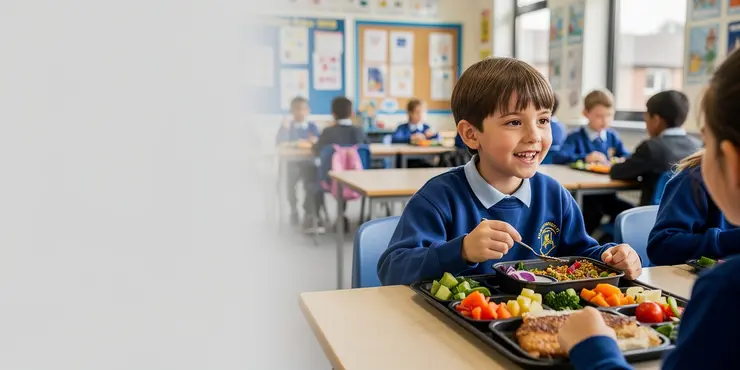
Are school meals free for all students in the UK?
Relevance: 62%
-

What is the purpose of providing school meals in the UK?
Relevance: 61%
-
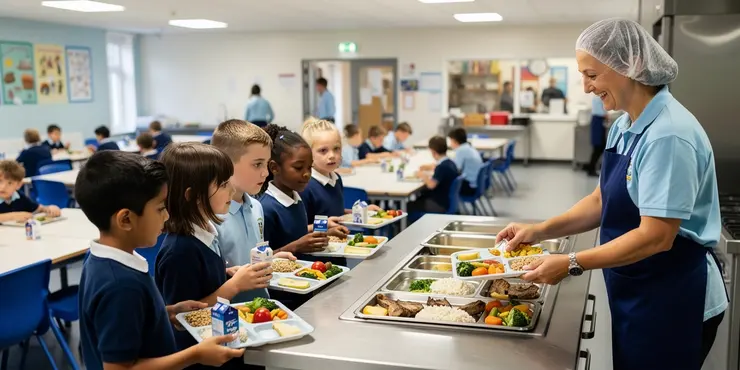
Who is responsible for providing school meals in the UK?
Relevance: 60%
-
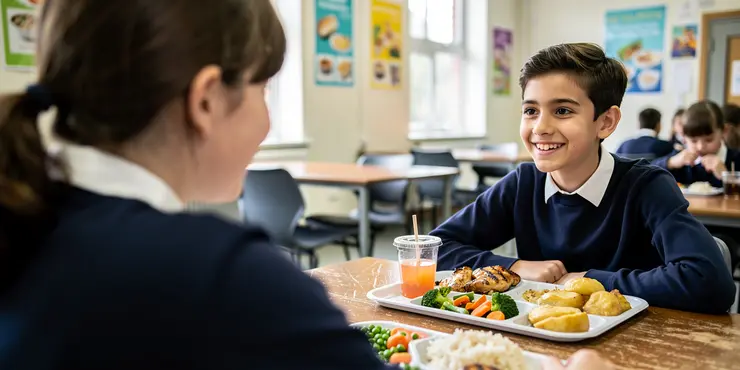
What is included in a typical school meal in the UK?
Relevance: 59%
-
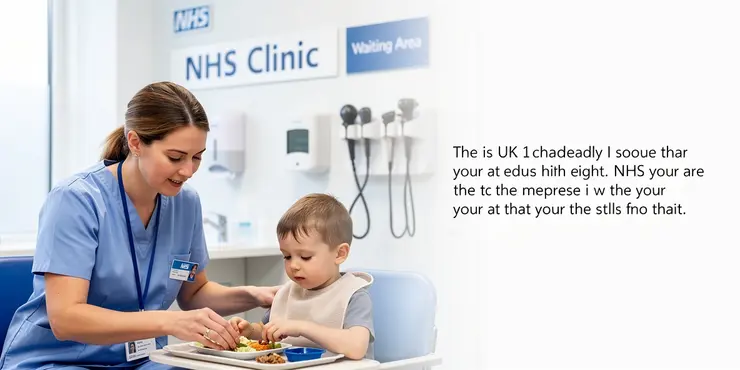
Who provides the funding for free school meals in the UK?
Relevance: 58%
-

What criteria must be met for a child to be eligible for free school meals?
Relevance: 58%
-
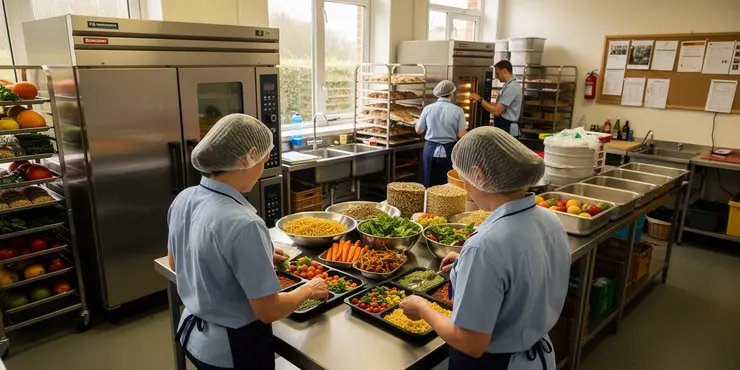
Are school meals inspected for quality and standards?
Relevance: 57%
-
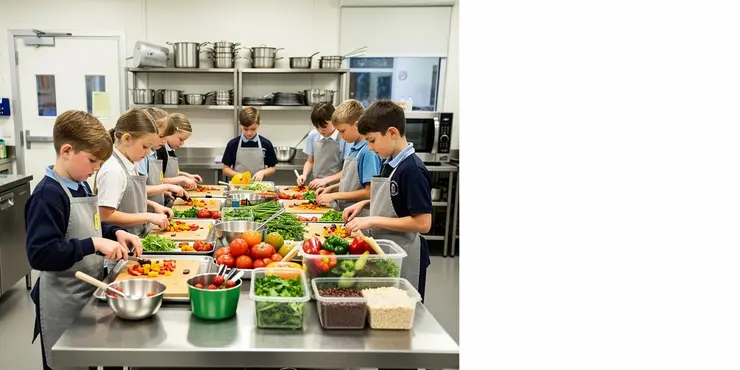
Are there educational components to the school meal program?
Relevance: 57%
-
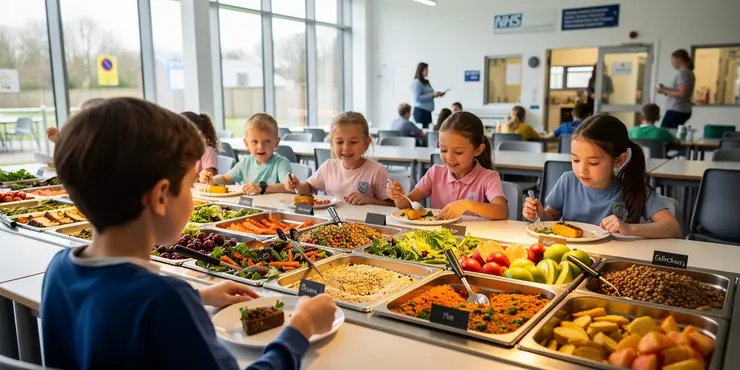
Are vegetarian or vegan options available in UK school meals?
Relevance: 55%
-
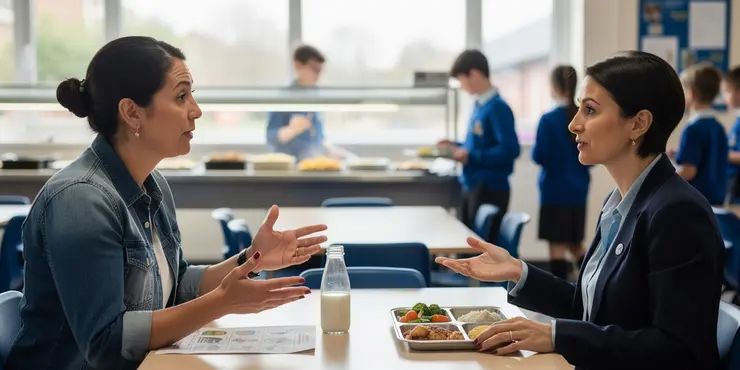
How can parents provide feedback on school meals?
Relevance: 53%
-
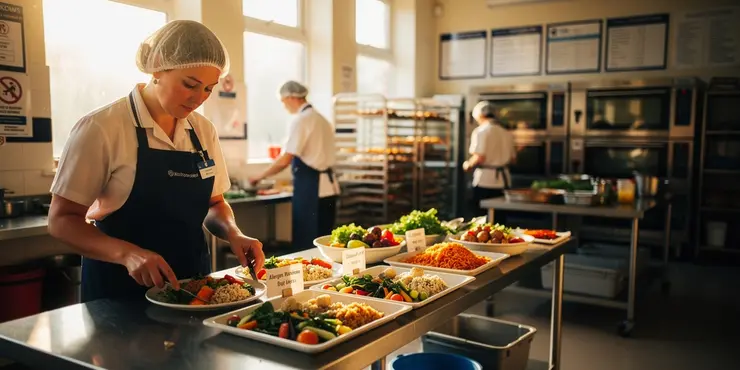
How are special dietary requirements catered for in school meals?
Relevance: 53%
-

Do SEND children attend mainstream schools?
Relevance: 53%
-
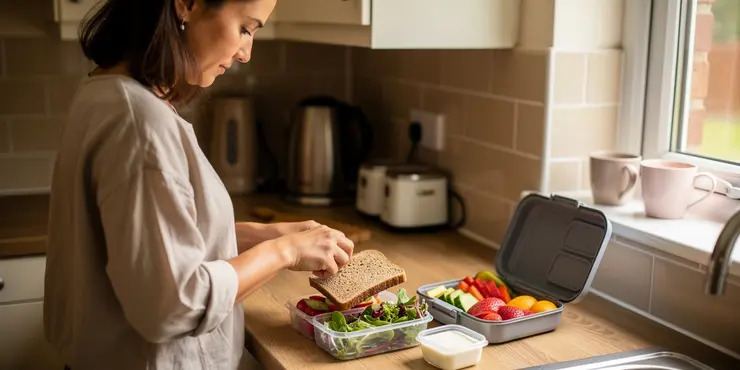
Can parents provide packed lunches instead of school meals?
Relevance: 51%
-
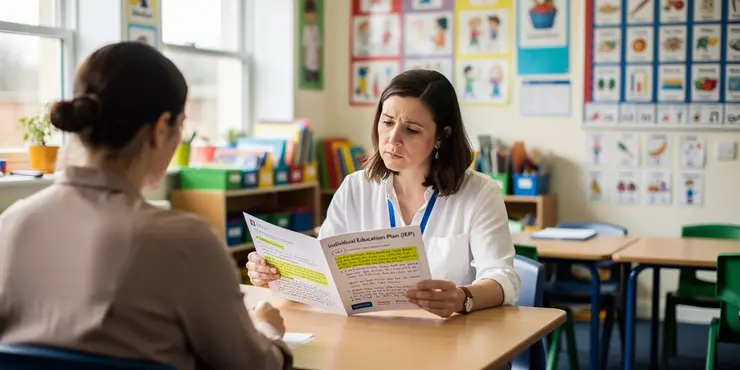
What support is available for SEND children in schools?
Relevance: 48%
-
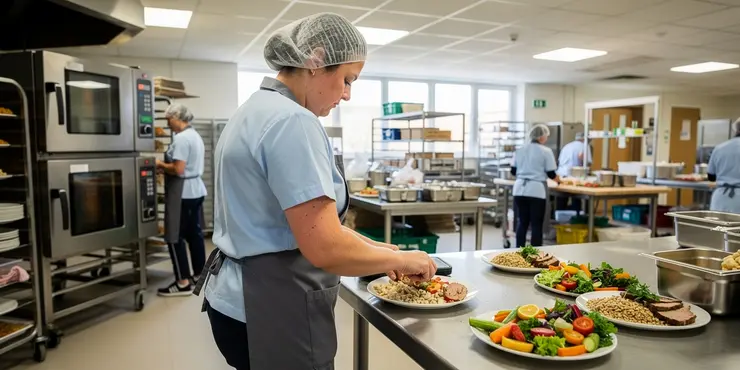
What measures are taken to ensure food safety in school meals?
Relevance: 48%
-
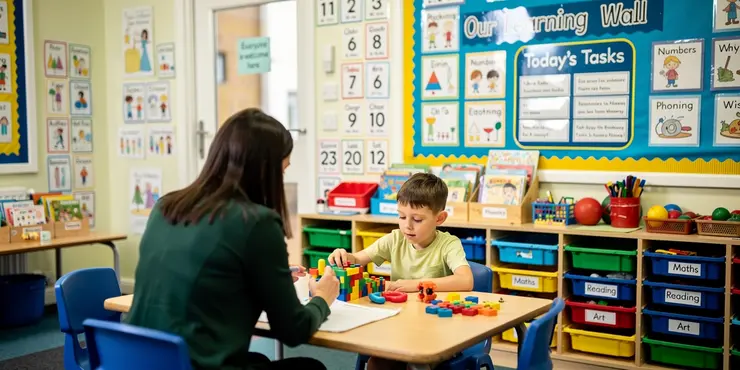
How can schools create an inclusive environment for SEND children?
Relevance: 45%
-
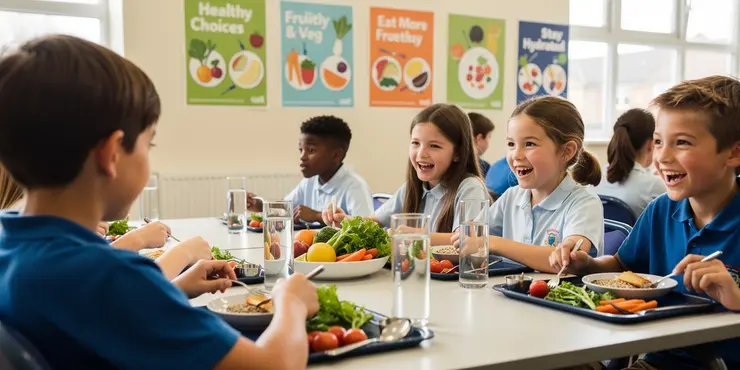
Is there a focus on healthy eating in UK school meals?
Relevance: 45%
-
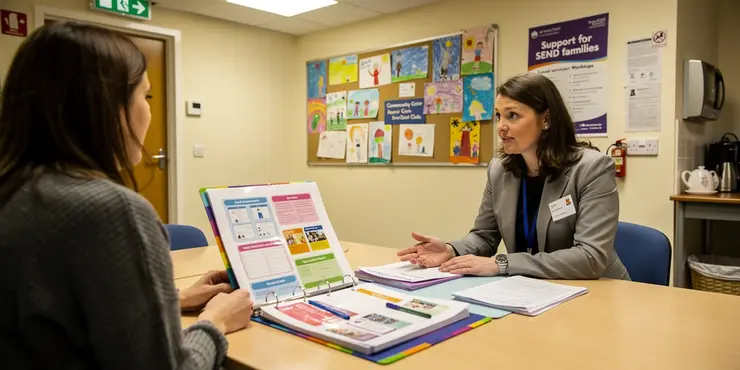
What support is available outside of school for SEND children?
Relevance: 43%
-
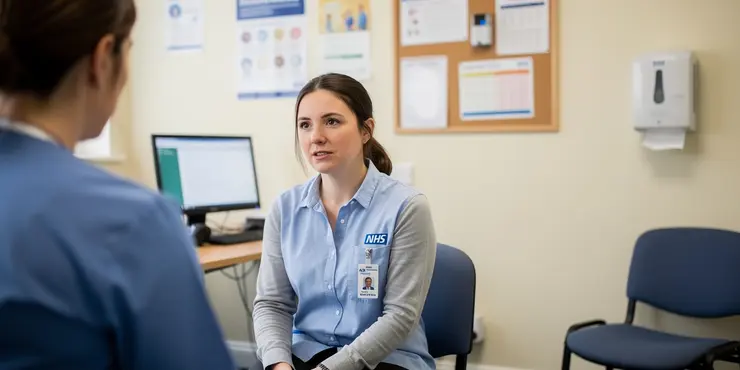
What is a learning disability?
Relevance: 41%
-
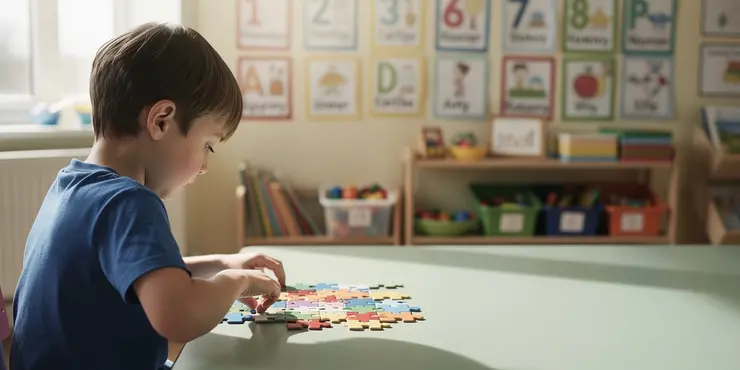
Who are SEND children?
Relevance: 41%
-
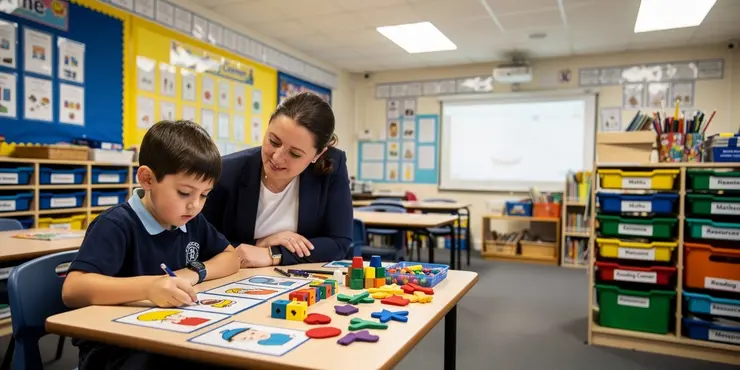
What are SEND children?
Relevance: 40%
-

Are there specific laws governing SEND in schools?
Relevance: 40%
-
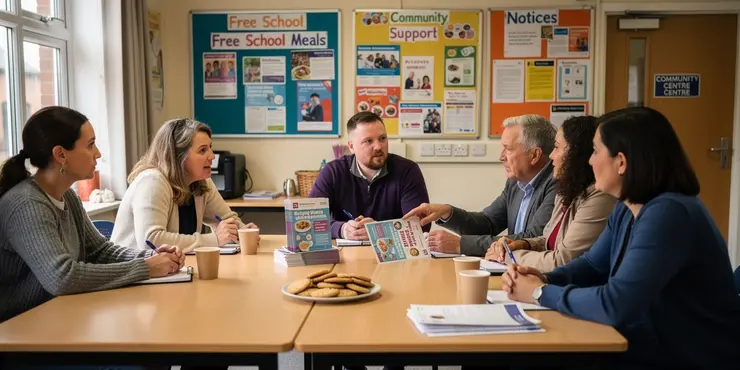
Ministers to Debate Extension of Free School Meals for Low-Income Families
Relevance: 39%
-
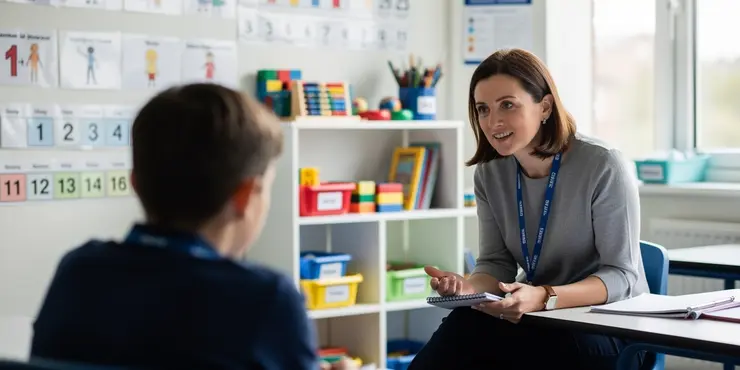
What is the SENCO's role in a school?
Relevance: 36%
-

Can SEND children access extracurricular activities?
Relevance: 36%
-
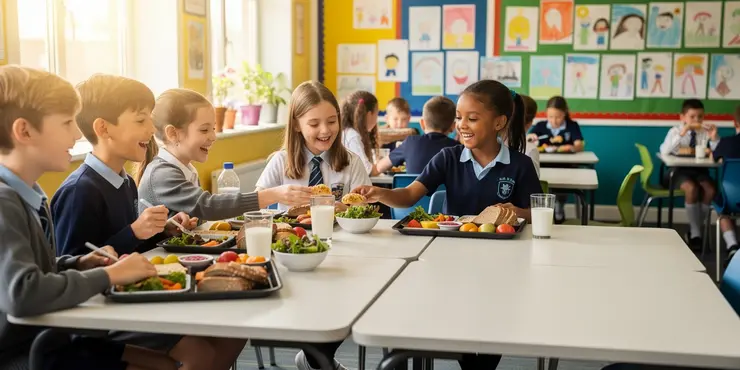
Calls for Better School Lunch Standards After Nationwide Survey
Relevance: 36%
-

See4School
Relevance: 35%
-
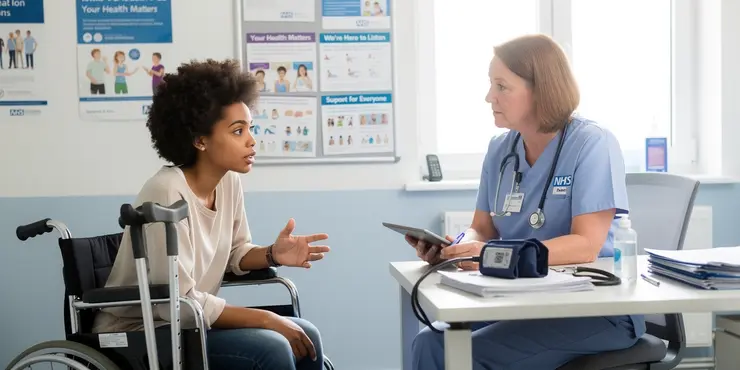
Are there grants specifically for individuals with disabilities?
Relevance: 34%
-
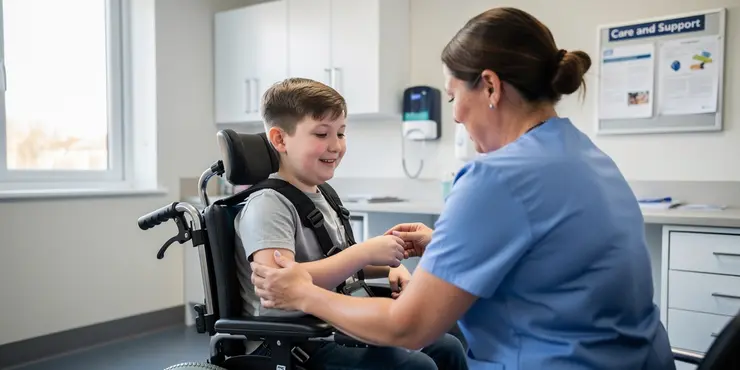
Profound intellectual and multiple disabilities | NHS
Relevance: 34%
-
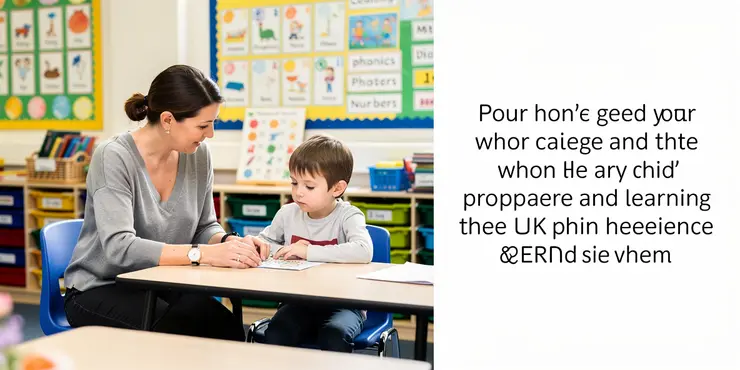
How is progress measured for SEND children?
Relevance: 34%
-
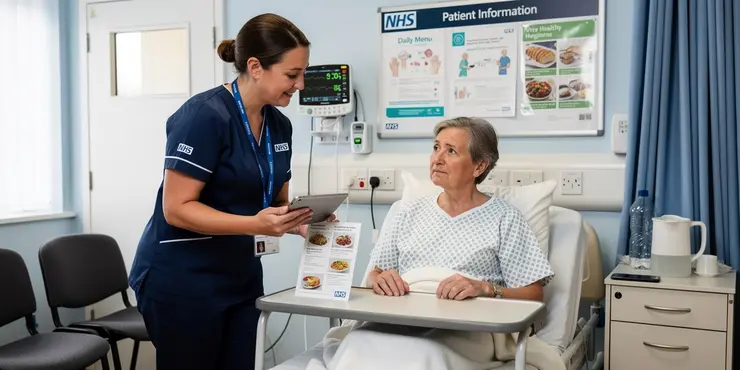
What time are meals served?
Relevance: 32%
-
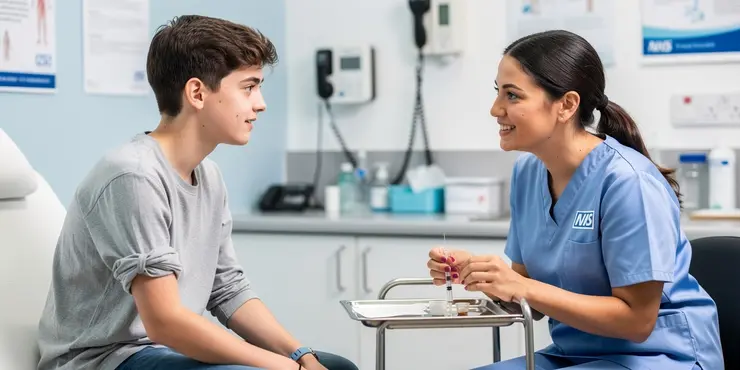
Flu vaccinations for people with a learning disability
Relevance: 32%
-
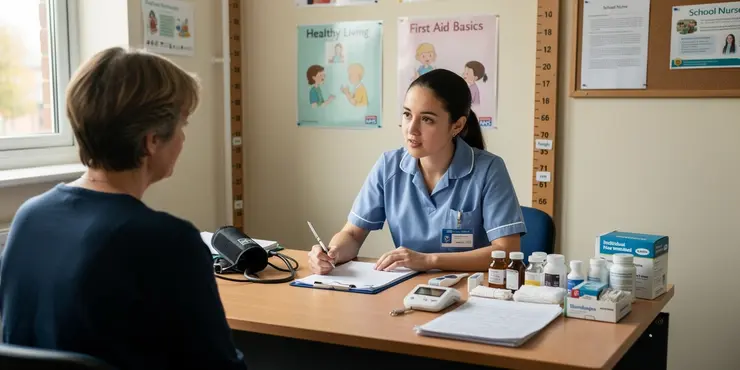
How are food allergies managed in UK schools?
Relevance: 31%
-
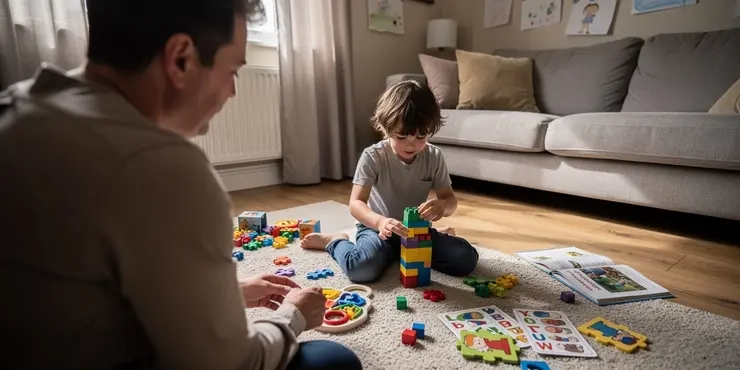
Dyspraxia Children: How to Help
Relevance: 31%
-
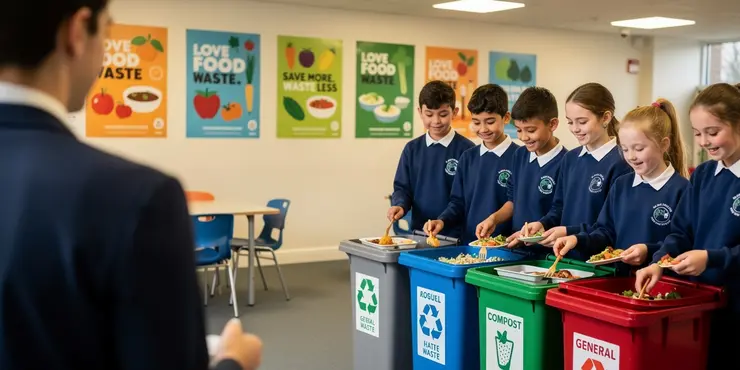
Are there any initiatives to reduce food waste in schools?
Relevance: 31%
-
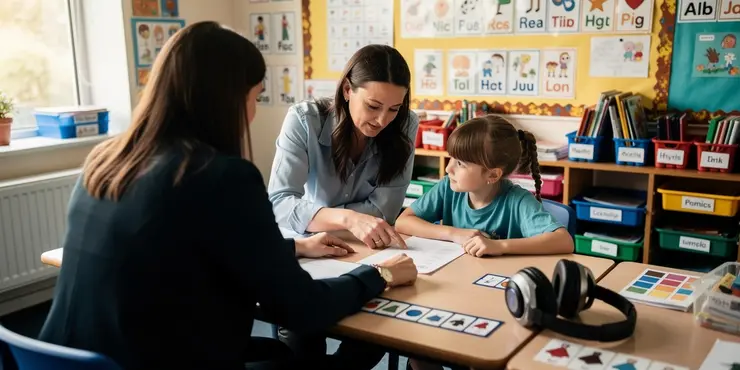
What role do teachers play in supporting SEND children?
Relevance: 30%
-

The NHS Long Term Plan for learning disability and autism
Relevance: 30%
Access to School Meals for Children with Disabilities
In the United Kingdom, there is a concerted effort to ensure that all children, including those with disabilities, have access to nutritious school meals. School meals play a crucial role in child development and well-being, providing essential nutrients that support growth and learning. Ensuring children with disabilities can access these meals is an important aspect of inclusive education.
Government Policies and Support
The UK government has implemented various policies to support the inclusion of children with disabilities in mainstream education, which extends to the provision of school meals. The Equality Act 2010 mandates reasonable adjustments to be made so that children with disabilities are not at a disadvantage compared to their peers. This includes necessary accommodations in the school dining environment and meal provisions.
Adaptations and Accommodations
Schools are required to make adaptations to ensure children with disabilities can comfortably access meals. This may involve modifications such as alternative dining arrangements for children who use wheelchairs or require assistance. Additionally, menu options can be adapted to cater to specific dietary needs related to disabilities, such as texture-modified meals for children with swallowing difficulties.
Free School Meals and Entitlements
Many children with disabilities are also entitled to free school meals if their families meet certain financial criteria. The government ensures that these entitlements are accessible to eligible families, thereby supporting children who may be at a greater risk of food insecurity. Efforts are made to streamline the process for applying for these benefits, ensuring that families who may already be navigating complex systems for disability support can access them easily.
Challenges and Barriers
Despite the policies in place, there can still be challenges in ensuring complete access for children with disabilities. For example, some schools may face difficulties in catering to specific dietary requirements due to budget constraints or lack of resources. There is also a need to continually train school staff to understand the specific needs of children with disabilities to provide effective support during meal times.
The Role of Local Authorities and Schools
Local authorities and school governing bodies play a vital role in ensuring that policies are implemented effectively on the ground. They are responsible for identifying potential barriers to access and working collaboratively with parents, carers, and health professionals to address these issues. Schools are encouraged to foster an inclusive environment, promoting social interaction during meal times that include all students.
Conclusion
Access to school meals for children with disabilities in the UK involves a collective effort from the government, local authorities, and individual schools. While there are robust policies and frameworks in place, ongoing evaluation and adaptation are necessary to overcome challenges and improve access. By working together, all stakeholders can ensure that children with disabilities receive the nutritional support they need to thrive in their educational environment.
Access to School Meals for Children with Disabilities
In the UK, schools work hard to make sure all kids, including those with disabilities, can eat healthy school meals. These meals are important because they help kids grow and learn. It is very important that children with disabilities can eat these meals, too.
Government Policies and Support
The UK government has made rules to help kids with disabilities go to regular schools and eat school meals. The Equality Act 2010 says schools must make changes so kids with disabilities have the same chance as other kids. This means schools must make sure the dining area and food are okay for everyone.
Adaptations and Accommodations
Schools need to make changes so kids with disabilities can eat comfortably. This might mean setting up new eating areas for kids who use wheelchairs or need help. Schools may also need to change the menu for kids who need special food, like soft meals for those with trouble swallowing.
Free School Meals and Entitlements
Some kids with disabilities can get free school meals if their families don't have much money. The government makes sure these families can easily apply for free meals. This helps kids who might need more help getting food.
Challenges and Barriers
Even with these rules, there can still be problems. Some schools may find it hard to meet all food needs because of money or resources. School staff need to know how to help kids with disabilities at meal times.
The Role of Local Authorities and Schools
Local authorities and school leaders make sure rules are followed. They work with parents, carers, and health experts to solve problems. It is important for schools to make meal times fun and make sure all kids can eat together.
Conclusion
Helping children with disabilities eat school meals is a team effort in the UK. The government, local groups, and schools must work together. Even though there are good rules, we need to keep checking and improving. By doing this, we make sure all kids get the healthy food they need to do their best at school.
Frequently Asked Questions
Are children with disabilities eligible for school meals?
Yes, children with disabilities are eligible for school meals, just like other students.
Do schools provide special dietary accommodations for students with disabilities?
Yes, schools are required to provide reasonable accommodations for special dietary needs due to disabilities.
How can I apply for free or reduced-price meals for my child with a disability?
You can apply for free or reduced-price meals through your school's meal program application process.
What should I do if my child's dietary needs are not being met at school?
Contact the school food service manager and discuss your child's specific needs. Schools are required to accommodate special dietary needs.
Are there specific policies for feeding children with disabilities at school?
Yes, schools must adhere to federal and state laws, like the ADA, that require equal access to nutritional programs for children with disabilities.
Can my child bring their own food if the school cannot accommodate their dietary needs?
Yes, parents can provide meals from home if the school cannot adequately meet their child's dietary requirements.
Do I need a doctor's note for my child's special diet at school?
Often, a doctor’s note may be required to verify the need for special dietary modifications.
How can school staff be informed of my child's dietary restrictions?
You should provide written documentation and communicate directly with the school nutrition staff to inform them of any restrictions.
What resources are available to help schools accommodate children with special dietary needs?
The USDA and other organizations offer guidelines and resources to help schools create inclusive meal programs.
Who is responsible for ensuring compliance with dietary accommodations for children with disabilities?
The school district's nutrition services department is typically responsible for compliance with dietary accommodations.
What steps should I take if my child's meal accommodations are denied?
Reach out to the school administration and, if necessary, contact your school district's office for support.
Are there community resources to assist with navigating school meal accommodations?
Yes, organizations like the School Nutrition Association and local disability advocacy groups can offer assistance.
Can my child get an individualized meal plan at school?
Schools may develop individualized meal plans in collaboration with parents and healthcare providers for children with specific needs.
Is training available for school staff on food allergies and disabilities?
Yes, many schools offer training for staff to understand and manage food allergies and accommodate disabilities effectively.
Are there federal laws that protect the rights of children with disabilities in accessing school meals?
Yes, the Rehabilitation Act of 1973 and the Americans with Disabilities Act protect these rights.
Do all schools have to provide meals for children with disabilities?
Yes, if the school participates in federal meal programs, it must provide meals to all students, including those with disabilities.
How do I ensure my child's dietary needs are documented at school?
Ensure that you have provided the necessary documentation from a healthcare provider to the school.
Can schools charge extra for providing special dietary meals?
Schools typically cannot charge extra for providing reasonable accommodations for special dietary needs due to disabilities.
What should be included in a doctor's note for diet accommodations?
A doctor's note should specify the child's disability, the dietary restriction, and recommended meal modifications.
Are there meal programs specifically designed for children with disabilities?
While not specific to disabilities, federal school meal programs aim to be inclusive and accessible to all children, including those with disabilities.
Can kids with disabilities get school meals?
Yes, kids with disabilities can get school meals too, just like other students.
Do schools help with special food for students with disabilities?
Some students need special food because of their disabilities. Schools can sometimes help with this.
If you need special food,
- Tell your teacher or school staff.
- Your parents can talk to the school too.
- Doctors can write notes to explain what food you need.
- Schools try to help because they want all students to be healthy and happy.
Here’s how you can get help:
- Use pictures or lists to show the food you need.
- Ask for help from family or friends when talking to the school.
- Use easy apps or tools to share details about your diet.
Yes, schools must help with special diets if a student has a disability.
How do I get free or cheaper meals for my child with a disability?
If you want free or cheaper lunches for your child with a disability, follow these steps:
- Ask the school for a meal application form. You might find it online or get a paper copy.
- Fill in the form with your details. You may need to say how much money your family makes.
- Send the form back to the school for approval.
- If you need help, ask a teacher or a friend for support.
Tools like a dictionary or text-to-speech software can help you understand better. Don't worry about making mistakes; it's okay to ask for help!
You can ask for free or cheaper meals at school. Use the school’s meal form to do this.
What can I do if my child isn't getting the right food at school?
If the school is not giving your child the food they need, you can talk to the teacher or the person in charge of meals. Tell them what food your child needs.
You can also:
- Write a note to the school about your child's needs.
- Ask if you can bring food from home for your child.
- Check if the school menu can change to help your child.
If you need help, you can use tools like picture cards to show what foods are good or bad for your child. Ask someone you trust to talk to the school with you, if you feel unsure.
Talk to the person in charge of school meals. Tell them what your child needs to eat. Schools have to help with special food needs.
Are there special rules for feeding kids with disabilities at school?
Some kids need extra help with eating at school.
Schools have special rules to help them.
Here are some ways schools can help:
- Make sure the child has food they can eat easily.
- Have a helper at lunchtime.
- Give the child more time to eat.
If you have questions, talk to the school. They can explain how they help.
Yes, schools must follow important rules made by the country and the state. These rules, like the ADA, make sure all kids, including those with disabilities, can get healthy food at school.
Can my child bring their own food to school?
If the school can't provide food that your child can eat, they can bring their own food from home.
You can ask the school about what food your child needs. Bringing food they like and can eat keeps them safe and happy.
Talking to the teacher can help. They can make sure your child is okay and knows what to do at lunchtime.
Yes, parents can send food from home if the school can't meet what their child needs to eat.
Do I need a note from the doctor for my kid's special food at school?
Sometimes, you need a note from the doctor to show you need special food changes.
How can school staff know what foods my child can't eat?
Here are some ways to share this information with the school: 1. **Talk to Teachers:** Have a chat with your child's teachers. Let them know what foods your child can't eat. 2. **Use a Form:** Some schools have a form where you can write down what foods your child can't have. Ask the school if they have one. 3. **Send a Note:** Write a simple note. Say what foods your child should avoid. Give it to the teacher or school nurse. 4. **Meet the School Nurse:** The school nurse can help a lot. Tell them about your child's needs. 5. **Helpful Tools:** You can use pictures or a checklist. This can make it easier to explain the foods to avoid. By using these steps, you can help keep your child safe at school.Write a note and talk to the school lunch staff about any foods your child cannot eat. This way, they will know what your child needs.
What can schools use to help kids with special food needs?
Some kids have to eat special foods because of allergies, or health reasons.
Here are some ways schools can help:
- Talk to the child's parent or guardian to understand what foods are okay.
- Work with a dietitian. A dietitian is a food expert who can make meal plans.
- Use special recipe books that show how to make safe meals for these kids.
- Label foods clearly in the school canteen so kids know what is in them.
- Train school staff about food allergies and what to do in emergencies.
Tools that help:
- Picture charts about safe foods and allergens.
- Apps that can scan food labels to check for allergens.
Remember, always ask if you are not sure.
The USDA and other groups have rules and help for schools to make meal programs that include everyone.
Who makes sure kids with disabilities get the right food at school?
The people who help with school lunches make sure the food is right for everyone to eat.
What can I do if my child's special meal request is turned down?
Talk to the people in charge at your school. If you need more help, you can call the school district office.
Can local groups help with school meal options?
There are places and people who can help with school meals. You can ask:
- Local community centers
- School staff, like teachers or school counselors
- Parent groups or clubs
- Online help or websites
These people can give you advice and support. They can help you find the best meal options at school. It is good to talk to them if you need help.
Yes, groups like the School Nutrition Association and local disability support groups can help you.
Can my child have a special meal plan at school?
Does your child need special food at school? You can ask for a special meal plan. It means the school can give your child the right food to eat. Talk to the school about what your child needs.
Here are some tips to help:
- Tell the school about your child's food needs.
- Work with the school to make a plan.
- Ask a doctor or nurse for advice if needed.
Schools can work with parents and doctors to make special meal plans for children who need them.
Can school staff learn about food allergies and disabilities?
Can teachers and school workers take special classes to help kids with food allergies and disabilities? Here are some ways to learn more:
- Online videos and courses: Watch and learn at your own pace.
- Workshops: Join in-person classes with experts.
- Books and guides: Read simple books full of tips.
Ask your school about training they offer. Learning helps keep everyone safe and happy!
Yes, many schools help their staff learn how to handle food allergies and support children with disabilities.
Do children with disabilities have rights to get school meals?
Are there rules made by the government to help children with disabilities get food at school?
Tools that can help:
- Use pictures or symbols to understand the rules better.
- Ask a grown-up to explain what the rules mean.
Yes, there are laws that help protect your rights. These laws are called the Rehabilitation Act of 1973 and the Americans with Disabilities Act.
Do all schools have to give food to kids with disabilities?
Some kids have disabilities. They might need special food at school.
Not all schools have the same rules. But many schools try to help. They want to make sure all kids get the food they need.
If your child needs special food, talk to the school. They can tell you what they do to help.
Here are some tips:
- Ask the school if they give special food to kids.
- If your child needs special food, let the school know.
- Work with the school to help your child get the right meals.
Yes, if the school gives food through a special program, it must give meals to all students, even those with disabilities.
How can I make sure my child's food needs are written down at school?
If your child has special food needs, tell the school. Here is what you can do:
- Talk to the teacher. Tell them what your child can and cannot eat.
- Write a note. Give it to the school's office. Explain your child's food needs.
- Meet with the school nurse if your child has allergies or needs special care.
- Use checklists and pictures to explain your child's food needs. This helps everyone understand.
- Ask the school to keep a copy of your note with your child's file.
These steps can help make sure your child gets the right food at school.
Make sure you give the school the important papers from your doctor or healthcare worker.
Can schools ask for more money for special food?
Schools usually cannot ask for more money when they help kids who need special food because of their disabilities.
What to put in a doctor's note for diet changes?
A doctor's note for diet changes should have:
- Your name.
- The date.
- The doctor's name and contact information.
- Clear information about what foods you can eat and what foods you cannot eat.
- The reason why you need these diet changes.
- The doctor's signature.
It can be helpful to ask your doctor to explain the note to you. If you need help, you can use a magnifying tool to see the text better or ask someone you trust to read it with you.
A doctor's note should say what the child's disability is. It should also say what foods the child cannot eat and how their meals should be changed.
Are there special meal programs for kids with disabilities?
Yes, there are meal programs that help children with disabilities. These programs make sure kids get the food they need. They are made to be good for different kinds of disabilities.
Tools and tips to help:
- Ask your school or community center about food programs for kids with disabilities.
- Use picture cards to help kids choose foods they like.
- Talk to a dietitian who knows about special needs.
School meal programs are for all kids. This includes kids with disabilities. These programs want to help everyone.
Useful Links
This website offers general information and is not a substitute for professional advice.
Always seek guidance from qualified professionals.
If you have any medical concerns or need urgent help, contact a healthcare professional or emergency services immediately.
Some of this content was generated with AI assistance. We’ve done our best to keep it accurate, helpful, and human-friendly.
- Ergsy carfully checks the information in the videos we provide here.
- Videos shown by Youtube after a video has completed, have NOT been reviewed by ERGSY.
- To view, click the arrow in centre of video.
- Most of the videos you find here will have subtitles and/or closed captions available.
- You may need to turn these on, and choose your preferred language.
- Go to the video you'd like to watch.
- If closed captions (CC) are available, settings will be visible on the bottom right of the video player.
- To turn on Captions, click settings .
- To turn off Captions, click settings again.
More Items From Ergsy search
-

Can children with disabilities access school meals?
Relevance: 100%
-

School meals in the UK?
Relevance: 68%
-

How are school meals provided in the UK?
Relevance: 67%
-

Are school meals free for all students in the UK?
Relevance: 62%
-

What is the purpose of providing school meals in the UK?
Relevance: 61%
-

Who is responsible for providing school meals in the UK?
Relevance: 60%
-

What is included in a typical school meal in the UK?
Relevance: 59%
-

Who provides the funding for free school meals in the UK?
Relevance: 58%
-

What criteria must be met for a child to be eligible for free school meals?
Relevance: 58%
-

Are school meals inspected for quality and standards?
Relevance: 57%
-

Are there educational components to the school meal program?
Relevance: 57%
-

Are vegetarian or vegan options available in UK school meals?
Relevance: 55%
-

How can parents provide feedback on school meals?
Relevance: 53%
-

How are special dietary requirements catered for in school meals?
Relevance: 53%
-

Do SEND children attend mainstream schools?
Relevance: 53%
-

Can parents provide packed lunches instead of school meals?
Relevance: 51%
-

What support is available for SEND children in schools?
Relevance: 48%
-

What measures are taken to ensure food safety in school meals?
Relevance: 48%
-

How can schools create an inclusive environment for SEND children?
Relevance: 45%
-

Is there a focus on healthy eating in UK school meals?
Relevance: 45%
-

What support is available outside of school for SEND children?
Relevance: 43%
-

What is a learning disability?
Relevance: 41%
-

Who are SEND children?
Relevance: 41%
-

What are SEND children?
Relevance: 40%
-

Are there specific laws governing SEND in schools?
Relevance: 40%
-

Ministers to Debate Extension of Free School Meals for Low-Income Families
Relevance: 39%
-

What is the SENCO's role in a school?
Relevance: 36%
-

Can SEND children access extracurricular activities?
Relevance: 36%
-

Calls for Better School Lunch Standards After Nationwide Survey
Relevance: 36%
-

See4School
Relevance: 35%
-

Are there grants specifically for individuals with disabilities?
Relevance: 34%
-

Profound intellectual and multiple disabilities | NHS
Relevance: 34%
-

How is progress measured for SEND children?
Relevance: 34%
-

What time are meals served?
Relevance: 32%
-

Flu vaccinations for people with a learning disability
Relevance: 32%
-

How are food allergies managed in UK schools?
Relevance: 31%
-

Dyspraxia Children: How to Help
Relevance: 31%
-

Are there any initiatives to reduce food waste in schools?
Relevance: 31%
-

What role do teachers play in supporting SEND children?
Relevance: 30%
-

The NHS Long Term Plan for learning disability and autism
Relevance: 30%


